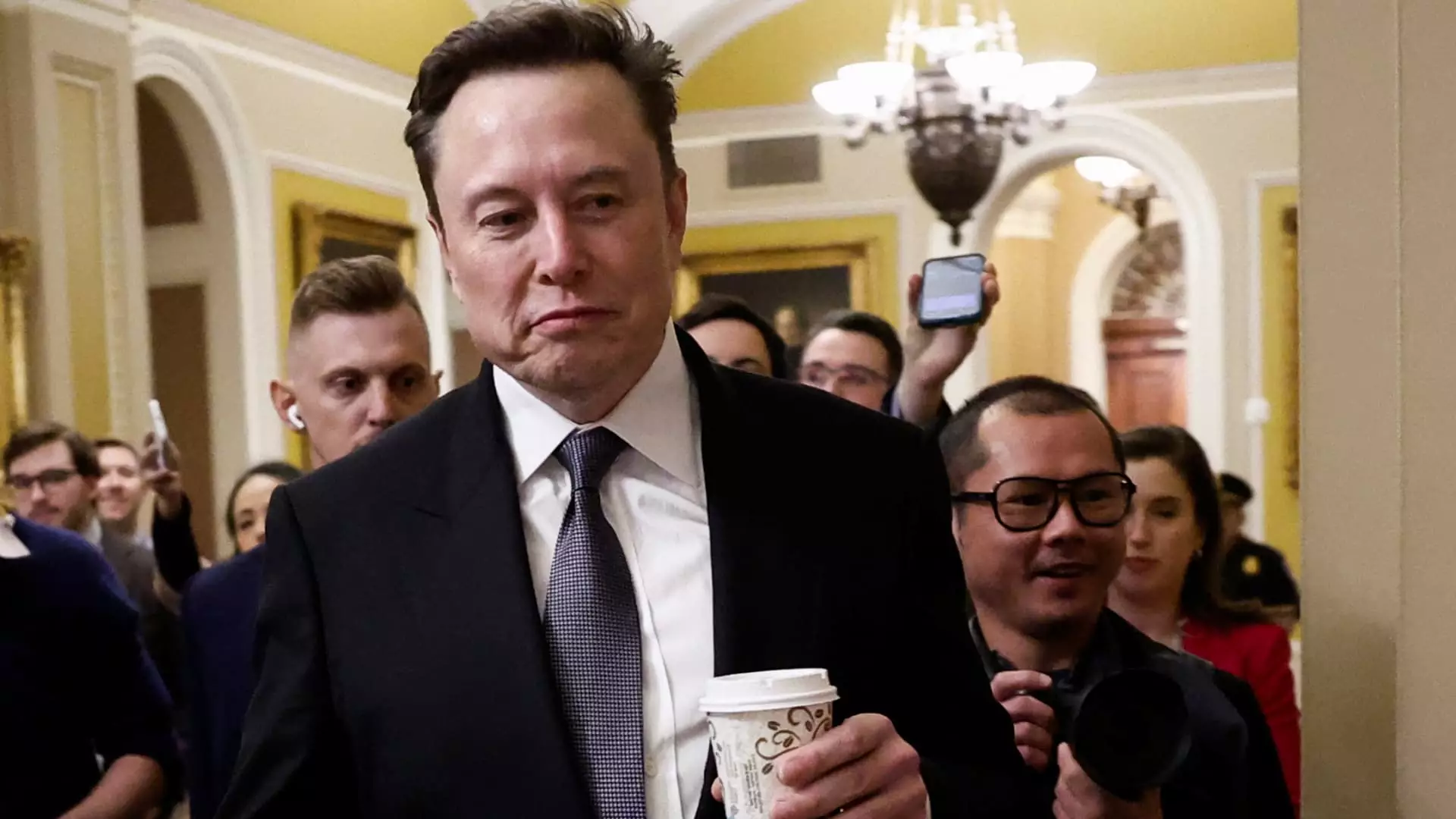In recent months, the influence of major corporate figures on government policy has become a hot topic for discussion, especially regarding the recent maneuvers by Elon Musk. House Democrats, namely Jim McGovern of Massachusetts and Rosa DeLauro of Connecticut, have voiced strong criticisms against their Republican counterparts for allegedly yielding to Musk’s pressures, particularly in relation to a bipartisan bill that aimed to regulate American investments in China. This situation raises significant questions about the balance of power between corporate interests and governmental duties.
The controversy originated from a proposed government funding bill that would have included provisions to regulate U.S. investments in China, focusing on sensitive technologies such as artificial intelligence (AI) and quantum computing. McGovern expressed disappointment on social media, indicating that the abandonment of these provisions not only faltered economic protections but also posed risks to job security within the United States. He emphasized that American leadership in innovative technologies should not be undermined due to the interests of one individual, which he perceived as Musk’s bid to maintain lucrative business operations in China.
As highlighted by McGovern, Tesla stands out as the only foreign automaker to manage a factory in China without the necessity of a local joint venture. This arrangement grants Musk certain leverage, but it also obligates him to align more closely with Chinese governmental interests. The implications of this relationship are far-reaching, especially given Musk’s ambitions to expand projects such as AI data centers in China, which have the potential to jeopardize U.S. national security.
One cannot overlook the strategic maneuvering Musk has employed surrounding his companies. By withholding Starlink services over Taiwan at the behest of both Chinese and Russian leaders, Musk’s actions appear to place corporate profitability above national allegiance, effectively reshaping the traditional boundaries of corporate governance and diplomacy. The significance of Taiwan’s status is monumental in U.S.-China relations; therefore, Musk’s decisions raise ethical questions about the intersections of business interests and international diplomacy.
Rosa DeLauro’s comments about Musk underscore concerns regarding his alignment with the Chinese Communist Party. Her characterization of Musk’s interactions as akin to those of a “President” draws parallels between corporate executives and state leaders, illustrating a shifting power dynamic that could mandate more scrutiny of corporate governance in the political realm.
DeLauro’s insistence on the risks associated with Musk’s close relationship with the Chinese government hinges on the broader narrative of security—both economic and national. In a world increasingly defined by technological innovation, the implications of allowing a single individual to wield such considerable influence over both corporate ventures and foreign relations introduce a precarious scenario that demands critical attention.
Additionally, the political affiliations and contributions from Musk to the Republican cause are key to understanding this discourse. With reports indicating that Musk invested staggering amounts of money to support Trump and Republican initiatives, his position as a significant benefactor underscores the entwined relationship between political campaigns and corporate interests, further complicating the notion of accountability in governance.
Musk’s vitriolic response to DeLauro—a harsh rebuke characterizing her as an “awful creature”—illustrates the contentious nature of discourse in the modern political landscape. This back-and-forth exemplifies the volatile intersection of personal animus, media platforms, and policy negotiations.
In the end, the situation serves as a cautionary tale about the potential dangers of individuals amassing too much control over significant policy discussions. The fallout from the proposed funding bill represents not only a singular failed legislative effort but also shines a light on the growing influence of corporate leaders over critical national security issues. As the United States navigates the complexities of its geopolitical landscape, the implications of such influence need meticulous attention and thoughtful regulation to ensure that corporate interests do not overshadow the welfare of the nation.

